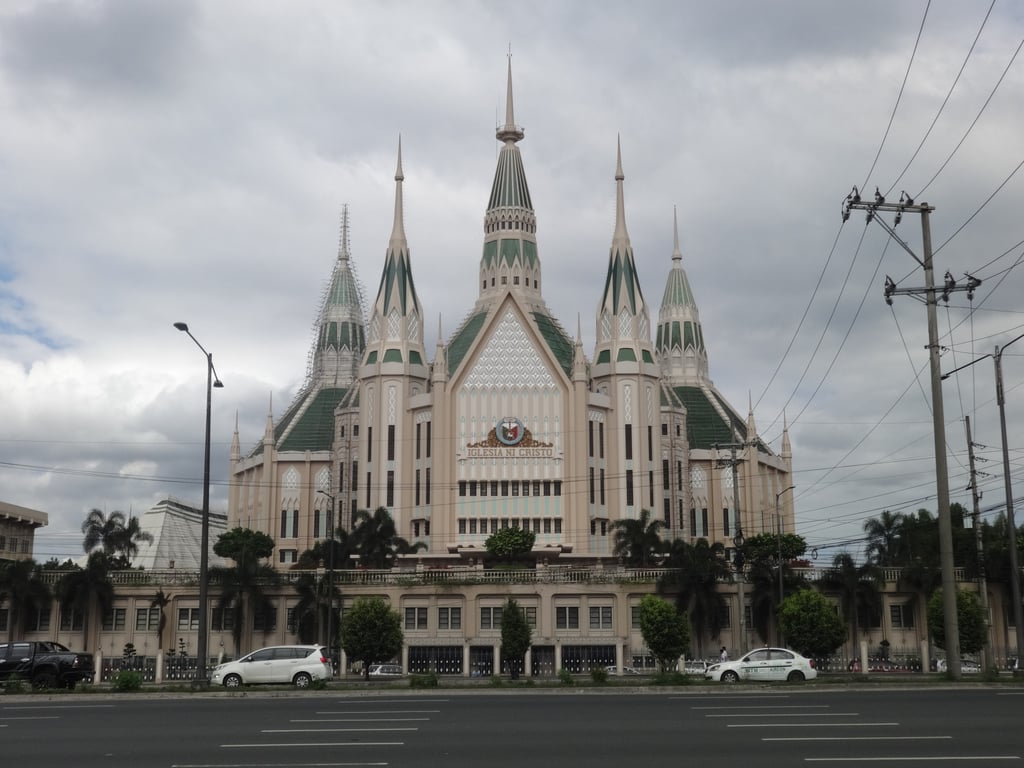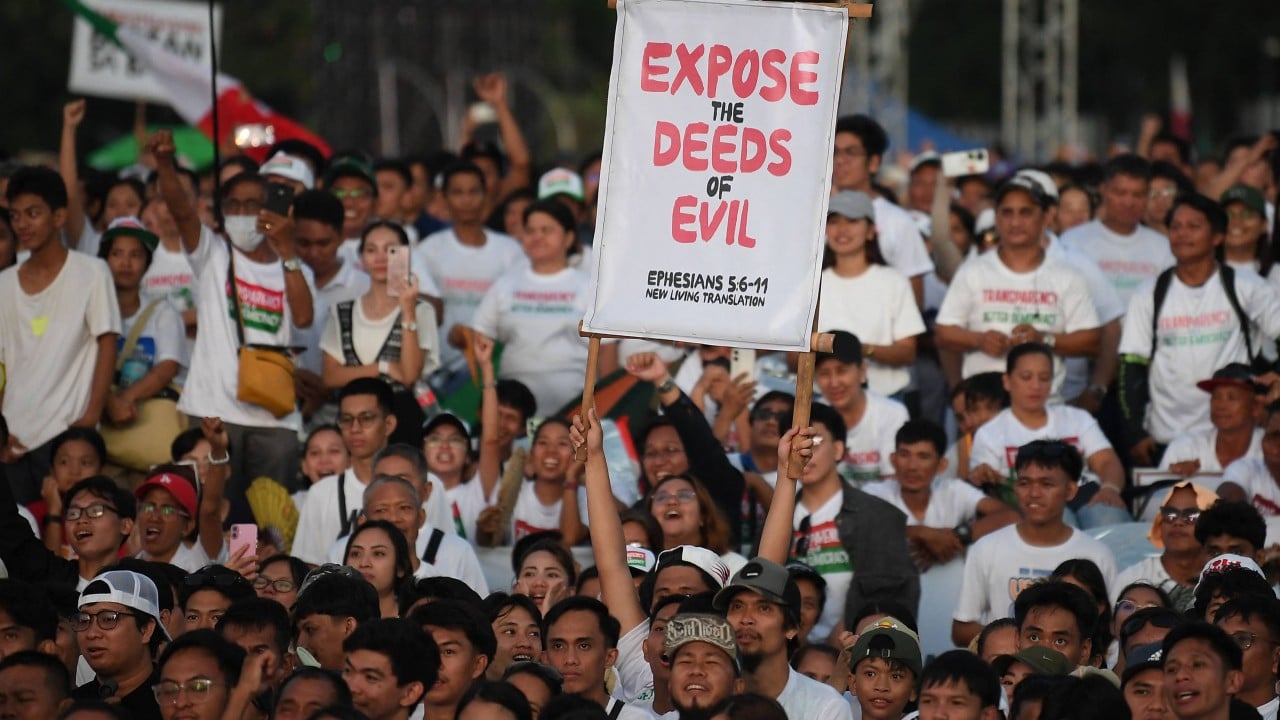The Philippines’ deepening flood-control corruption scandal has now drawn in one of the country’s most influential religious groups, with a mass mobilisation by members of the Iglesia ni Cristo (INC) church offering a revealing glimpse into the political fault lines reshaping Manila’s crisis.
Advertisement
The two-day gathering, which began on Sunday and drew more than half a million INC members to the capital, was officially framed as a demand for transparency and accountability over billions of pesos allegedly lost to anomalous flood-mitigation projects.
But analysts say the rally’s scale and timing signal the Christian church’s intent to test its political leverage at a moment of uncertainty, using the corruption scandal to assert its relevance as rival factions in government jostle for advantage.
“I’d like to give the INC the benefit of the doubt; the rally is a legitimate expression of grievances … However, the church’s call to action can indeed also be construed as a flexing of its political muscle,” Gino Trinidad, a political-science instructor at the Ateneo de Manila University, told This Week in Asia.

Founded 111 years ago, the INC claims more than 2.8 million members, a minority in a predominantly Roman Catholic country but one whose political influence vastly exceeds its size through bloc voting, in which members are instructed to follow leadership endorsements during elections.
Advertisement
That ability to marshal followers at scale has long made the church a coveted ally for politicians and a potent force when it chooses to bring its grievances to the streets.

